Three-quarters of UK and Ireland’s ‘underutilised’ energy grid could support more capacity
Around 74% of electricity distribution networks in the UK and Ireland are underutilised, new analysis by Neara reveals.
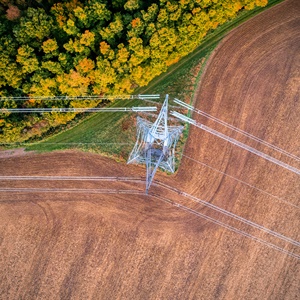
Around 74% of electricity distribution networks in the UK and Ireland are underutilised, new analysis by Neara reveals.

Rolls-Royce SMR has signed a deal with Czech firm Škoda JS, a nuclear component manufacturer owned by power company ČEZ Group, and Curtiss-Wright’s UK-based nuclear business.
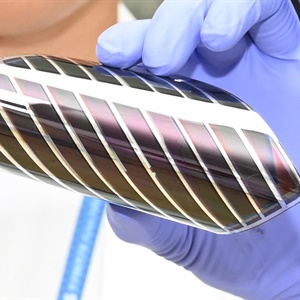
A South Korean research team has developed a new material for high-efficiency flexible perovskite solar cells that can be manufactured even in high humidity.

A South African project is making rhino horns traceably radioactive to deter poaching before it starts.

High employment costs outrank energy bills as the reason SMEs feel pressured to raise prices, according to a new report from Enginuity.

Microplastics exposure indoors could be 100 times higher than previously estimated, according to a study.

The National Grid will allocate £8bn to regional delivery partners for substation construction across England

Firefly Aerospace has been awarded a $177m NASA contract to deliver five payloads to the Moon’s south pole in 2029.

Researchers have taken a ‘major step’ towards sustainable industrial carbon fibre production using CO₂-absorbing microalgae.
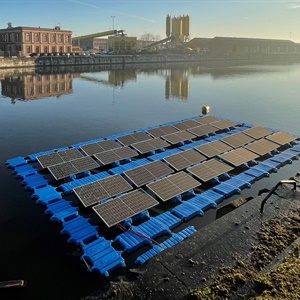
French clean-tech company HelioRec has reached a significant certification milestone for its near-shore floating solar system.

A woman fitted with a chip in her brain has been able to write her name for the first time in 20 years using only her thoughts.
The pace of gaming innovation between the years 1990 and 2010 saw a drastic shift from 2d sprites moving linearly across flat la

Cloning technologies are being used to uncover the hidden medicines hiding in soil bacteria. You do not need to go too far back in recent history to find yourself in the golden age of medicine – a time when life-saving drugs were being discovered and developed at an unprecedented rate. Having been kick-started by the discovery of penicillin in the late 1920s, scientists spent the majority of the 20th century harvesting antibiotics, anticancer drugs and immunosuppressants from microbes living in the soil beneath our feet. These so-called natural products (NPs) were not just a source of new treatments; they formed the backbone of modern medicine. More than 500 life-saving treatments discovered during this golden age are still improving lives today – from penicillin, which remains a cornerstone…

Former President Joe Biden’s CHIPS and Science Act already had flaws, but now his successor’s administration’s approach is complicating matters further.

Since 2002, all of Earth’s continents have experienced “unprecedented freshwater loss” driven by climate change, unsustainable groundwater use and extreme droughts, new satellite observations have revealed.

Great British Railways is a “solution looking for a problem” and could see the UK repeating mistakes made under British Rail.

Researchers at Meta are developing a wristband capable of controlling devices using subtle hand or finger gestures. A team from Reality Labs at Meta – Meta Platforms’ dedicated division for building hardware, software and research – have been working on another way to interact with technology on-the-go that does not require any input devices such as keyboards, just a wristband and hand gestures. This includes being able to move a cursor, open apps and send messages by writing in the air as if using a pencil. As the company said in a blogpost, “we believe that surface electromyography (sEMG) at the wrist is the key to unlocking the next paradigm shift in human-computer interaction (HCI)”. sEMG is a non-invasive method to measure muscle activity via sensors on the skin surface. Using…
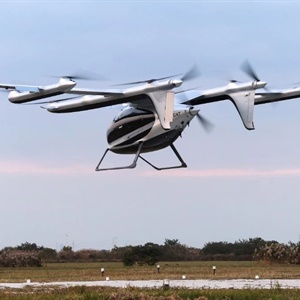
Nasa is testing how 5G could help future air taxis communicate with each other and reduce the risk of collisions. 5G networks are capable of managing masses of data at once and have very low signal latency compared with satellite systems – features that lend themselves well to providing location data between aircraft in busy city skies. Ground antennae and networks in cities can help air taxis stay connected as they fly over buildings, making urban flights safer. But 5G is also poor at penetrating walls and buildings – especially at the higher-frequency, mmWave end of the spectrum. This can make it prone to signal dropouts that have the potential to hamper air taxis. “The goal of this research is to understand how wireless cellphone networks could be leveraged by the aviation industry…

Successive governments have failed to tackle the dangerous health, environmental and economic impacts of nitrogen pollution in England, a House of Lords report has warned. The pollution is mainly caused by agriculture, sewage, transport and industry, but a lack of regulation and enforcement has allowed it to proliferate. The cross-party Environment and Climate Change Committee has created a report with a number of recommendations for key sectors. On agriculture, it advocates low-emission spreading techniques for manure, digestate and urea by 2027, improved enforcement of existing rules around water and fuel usage and extending environmental permitting regulations to large dairy and beef farms within two years. On tackling pollution from rivers and water bodies, the report calls on more…

The fusion industry raised $2.64bn in private and public funding in the past 12 months – a 178% rise from the previous year – according to a report by the Fusion Industry Association (FIA). Now in its fifth year, the annual Global fusion industry report tracks growth in the fusion sector and progress towards commercial fusion deployment. Fusion is a potential source of almost limitless clean energy, which is seen as vital for energy security and the climate crisis. It uses the same process that powers the Sun by combining two forms of hydrogen and heating them at extreme temperatures. For the report, the FIA, which is based in Washington DC in the US, surveyed 53 fusion companies and found that the total funding for these companies stands at $9.7bn – a five-fold increase since 2021. …
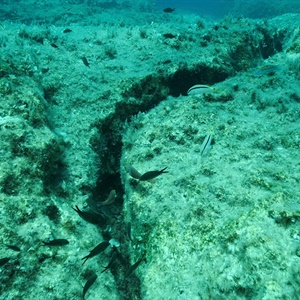
An unmanned seaplane designed to detect imminent earthquakes has been developed by University of Tokyo researchers. Megathrust earthquakes occur on faults found along the boundaries between tectonic plates. The Nankai Trough is a megathrust earthquake zone lying off the south-west coast of Japan, and experts estimate that this zone could generate a potentially devastating large earthquake (magnitude 8 or 9) within 30 years. Added to the direct catastrophic impact of such a powerful quake, a seismic event of this magnitude could trigger cascading hazards such as destructive tsunamis. Traditionally, seafloor measurements have been obtained using transponder stations located on the seafloor that communicate with satellites via buoys or ocean-going vessels to produce accurate positional information…

The new MachLab rocket-testing facility has opened in Scotland, aiming to support the research and development of new rocket engines capable of delivering up to one tonne of thrust. Established by researchers from the University of Glasgow with backing from industry and the UK Space Agency (UKSA), MachLab features custom-built facilities to test rocket designs. The facility was built in partnership with space technology experts Exotopic and is located on the site of the former RAF Machrahanish airbase near Campbeltown in south-west Scotland. Professor Patrick Harkness at the University of Glasgow’s James Watt School said: “MachLab is ready to play a key role in the UK’s strategy to return to vertical launch, ensuring that students and researchers can access hotfire facilities in a safe…
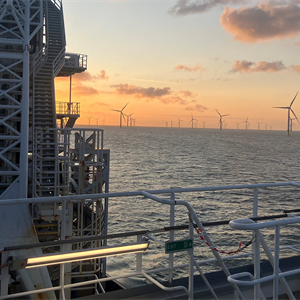
Construction of the 1.4GW NeuConnect UK-Germany power link has entered its next phase with a cable-laying vessel entering UK waters to put down 140km of subsea cabling. The €2.8bn NeuConnect project is a direct power interconnector between the UK and Germany. It consists of 725km of land and subsea cables that will connect the energy grids of the two countries for the first time. The 1.4GW cable system will run between the Isle of Grain in Kent and Wilhelmshaven in northern Germany. It will help boost energy security while also promoting the efficient use and integration of renewable energy sources in both Germany and the UK. In 2022, Prysmian, a global cable solutions provider, was awarded a €1.2bn contract for the turnkey design, manufacturing, installation, testing and commissioning…
The UK government’s overseas operations are to make use of OneWeb’s satellite broadband network to enable access to secure, reliable communications across the world. International diplomatic missions such as British embassies and high commissions will be able to route their internet traffic through the service to mitigate issues such as unreliable local broadband. FCDO Services, the Foreign Office’s trading fund, said that crisis response teams in areas hit by natural disasters could also use the service. OneWeb’s original aim was to provide satellite internet worldwide, but by 2020 it was on the brink of bankruptcy, having launched just 74 of its planned 648 satellites. The UK government rescued the business by buying a major stake, alongside Indian telecommunications firm Bharti Global…
We're about to take you to the IET registration website. Don't worry though, you'll be sent straight back to the community after completing the registration.
Continue to the IET registration site